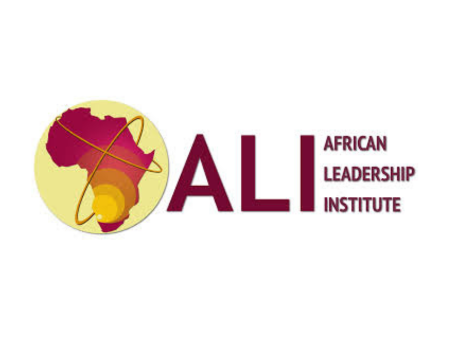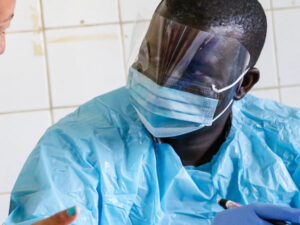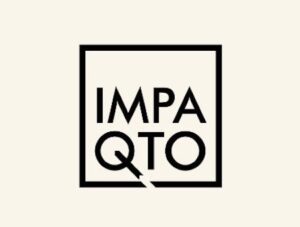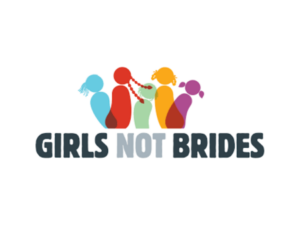The African Leadership Institute develops leadership capacity across the African continent and in all sectors of society. Its flagship program, The Archbishop Tutu Leadership Fellowship, provides an experiential learning program to enhance individuals’ leadership skills based on the values of togetherness and servant leadership.
Jackie Chimhanzi of The African Leadership Institute spoke with Catherine Edwards on July 19, 2023. Click here to read the full conversation with insights highlighted.
Catherine Edwards: To begin with, could you please introduce yourself, your role in the organization, and summarize the problem that your work exists to address?
Jackie Chimhanzi: My name is Jackie Chimhanzi, and I’m the CEO of the African Leadership Institute. The problem that we’ve observed on the African continent is that there’s a deficit of effective leaders. We know that effective leadership is the lever for development. It’s one of the reasons Africa has been held back for so long in terms of poverty, lack of access to healthcare, lack of access to education and infrastructure and water and food insecurity. And now we’re battling to deal with climate change. It really has to do with leadership. We see leadership as an important cross-cutting issue that, once it’s addressed, addresses all the other issues in all the other sectors. That’s what we’re trying to do by developing a new generation of African leaders who are also values-based, because values-based speaks to corruption as well. We are addressing the leadership problem on the continent.
Catherine Edwards: Could you describe how you’re working to do that and talk about what makes your approach, the way that you’re working, distinctive and different?
Jackie Chimhanzi: We were founded in 2006, and we capacitate 25 African leaders every year. These are young leaders between the ages of 30 and 40, so they’re kind of mid-career though some are senior. They’re CEOs, they’re social entrepreneurs, they work in different sectors – education, health, agriculture, and some of them are in the civic space, some are running nonprofits. It really cuts across different sectors and cuts across the country. It’s a Pan-African program.
In terms of what makes us distinct, Archbishop Tutu was our patron, so we’ve designed the program in such a way that we leverage his values. His values are Ubuntu, “I am because you are. Togetherness”. It’s also about servant leadership. It’s about integrity, morality. We’ve designed the program on the basis of those values, all the good values from the Archbishop. We are hoping that the leaders, when they go through the program, are inculcated with those values. That’s what makes us distinct.
The other thing that makes us distinct is our learning, the way we approach learning. We’re not teaching what leadership is. We’re saying that you are in the program because you are already a leader, but we need to bring the leader out of you. We need to improve your self-awareness. How do you show up as a leader? How do your followers experience you? And then, based on that, we want to take you to the next level of your leadership. We have a lot of experiential learning, which is quite distinct. It’s classroom-based, it’s a place where people immerse themselves in experiences and get to see who they are. We also work with a psychologist. We get a lot of high-level speakers. It’s very different in terms of the design as well.
Catherine Edwards: How do you reach and select the leaders that you work with?
Jackie Chimhanzi: We go through a nomination process. We don’t advertise openly, only because we just wouldn’t have the capacity to deal with so many applications. But also, going through a nomination process provides a filter and we kind of get the cream of the crop. We open up for nominations and our nominators will know that we’ve opened up the process and they’ll nominate a young leader that they feel is deserving of the opportunity to further develop their leadership capacities.
Catherine Edwards: How are you measuring success in the program?
Jackie Chimhanzi: Well, it’s a very good question and, yeah, success is always difficult for nonprofits to measure. But I think our program over the years has developed a reputation of being life-changing and transformative, and we can measure this in two ways. One is qualitative and one is quantitative. From a qualitative perspective people say, “This program has changed my life.” They may even take a new career trajectory because of the program. They will build lifelong friends because of the program. They will get to know who they are as individuals. Remember they work with a therapist? So, it’s quite an intensive process and they always come out better on the other end.
From a quantitative perspective, they have to do a community project and a lot of fellows have started community projects that have had positive impacts in their communities. When they finish the program and they become part of the broader alumni network, they also collaborate with other fellows. That’s the quantitative aspects of impact, where we see tangible projects that are happening as a result of someone having gone through the program.
Catherine Edwards: Could you maybe share an example or a couple of examples of the projects that have come out of it?
Jackie Chimhanzi: There’s one fellow from Kenya. In 2017 he set up an agriculture project in Kenya, in the county where he grew up and there are a lot of disenfranchised youth and struggles with drugs and alcohol. He went back and, with some money that he had raised amongst his classmates, I think they raised like $10,000, he managed to get a small piece of land and equipment and he trained them. Now they’re farming, and in fact, he’s managed to get access to overseas markets, so they export to the UK. They export things like mint to make mint oil, so special herbs that can be used in specialty cooking, aromatherapy or whatever.
They’re actually making a living now, which is really quite extraordinary. They’re farming so much that they’re actually looking for additional export markets within the East African region. That’s one example. Another example is a Nigerian fellow from 2007 who set up something called the Paradigm Initiative, and it’s actually become his life’s work. He’s had funding from Google, from the Ford Foundation, from all the big organizations. He’s working on access to digital skills for impoverished youth, and also digital rights and all of that. I think he’s now in 16 African countries. But that started as his Tutu project.
Catherine Edwards: That’s great. And I’m also wondering how things have maybe transformed over the time that it’s been running? What changes have happened along the way?
Jackie Chimhanzi: We were started in 2006 by two gentlemen, Sean Lance and Peter Wilson. Peter was an executive director, so he was involved in the day-to-day running and was also the program director. Sean Lance was more of the non-executive. He was the chairman. During that time, we’ve had two. I came on in 2016. One of the things we’re working on is the transition from being a founder led organization to having a professional CEO. That’s happened. And one of the things that I’ve been keen to do is to put in place systems and processes to ensure institutionalization, so that if the founders are no longer with us, we can continue to provide a world-class program. We also partner with Oxford University.
Those are the things I’ve been trying to do, institutionalization, systems and processes. Also fundraising, not only to ensure the sustainability of the work we do, but to start to invest in the network. We have this amazing network now of close to 400 young leaders across 50 countries in very senior positions who are effecting change. I would like to be able to unlock the capacity and the potential of the network as a whole. It’s a network of individual people, but you can imagine what happens if you unlock it, the sum of the whole is greater than the parts. That’s where I’d like to focus on now in this phase of my leadership.
I really strongly believe in governance and institutionalization, so I’ve also revamped our governance structures, putting in place new board members and putting in place an advisory board. More recently, we have a new program director who’s taken over from Peter Wilson, the founder. We’re seeing a lot of succession planning and trying to move on in terms of institutionalizing processes and systems and new blood as well – new ideas, new energy.
Catherine Edwards: Over that time, have you come across any insights or lessons that you think others could take from your work and maybe build on or replicate what you’ve done?
Jackie Chimhanzi: Firstly, nonprofits are really hard work. That’s the first thing. You can’t come in with the idea that, “I’m the CEO, I only do this.” You do everything. And in fact, that’s why I need more capacity because I’m doing social media, I’m fundraising, I’m just all over the place. I’m trying to activate the alumni network. So, capacity would be very much appreciated. In terms of learning, specifically for others in this similar space, and there’s so many fellowship programs now, Obama’s got Africa Leaders and Eisenhower Fellows, there are so many fellowships.
My biggest lesson is that the post-program element is usually an afterthought, but it’s also the most critical. People go through the program, they sit there for 10 days, whatever it is, they have the aha moments, then they leave, and then sometimes it’s back to normal. You know what I mean? Now you’ve got the pressures of work and family. So, for me, it’s how do you keep that fire going? How do you keep these people energized to want to continue to make a better Africa or whatever it is that they’re focused on. How do you ensure that there’s constant engagement that they keep encouraging each other? It’s also about accountability. Remember, Archbishop Tutu was our patron, so servant accountable leadership is so important to us.
I think a lot of leadership programs struggle with keeping the energy going, integrating a new cohort into the existing alumni network. Digital platforms are great, but people also need to meet periodically. There’s a cost element to it, so we’re still trying to figure out how we do better with digital in the absence of frequent get togethers that are in-person. Those are the challenges that I think a lot of other programs do face.
Catherine Edwards: Do you have any tips or ideas based on your work, answers to those difficult questions that you’ve raised? Things that can make sure that these programs have that long-lasting impact?
Jackie Chimhanzi: I think one of the ways to do it is to break down the group into smaller groups on a sector basis. So, your fellows in agriculture, your fellows in health, your fellows in education, which is what we’ve done. We’ve seen that it makes for more targeted conversations amongst smaller groups that understand each other’s work well. When you do that, when you give them the space, when you curate the space where they’re able to engage, you are more likely to see collaborations coming out of that. And I think we are starting to see that. There’s a very big noisy WhatsApp group, but the smaller groups tend to be very focused.
Catherine Edwards: We know that in social innovation there’s lots to be learned from things that don’t work. I was wondering if you could describe something you may have tried that didn’t work, or didn’t work in the way you expected? Something that taught you a lesson or could teach other people a lesson about how to work in the sector?
Jackie Chimhanzi: I think the lesson is that it’s just very difficult to manage 400 very busy people. You know what I mean? These people may already be doing a lot for Africa, I mean, these are Africans at the forefront of transformation so they’re already doing a lot. Sometimes I think to myself, “Is it reasonable for us to want them to do more?” One of the lessons that I’ve learned is that the collaborations have to be organic. It’s two, three people getting together and saying, “Oh my gosh, this is where we can work together.” I don’t think we can ever impose a project to say, “We need to demonstrate impact, therefore go and work on this.” It has to be organic, and our role in that is to curate the opportunities for people to get together and talk. And when they do, things will happen. I think that’s been my biggest lesson.
Also, just to come back to something you asked me before, one thing that I have observed is that a lot of grant makers are focusing on technical solutions. They’ll put money in for, I don’t know, for a healthcare solution or research for cancer, whatever it may be. But there are fewer grant makers who want to put money into the leadership behind the technical solutions. And maybe this is something you need to highlight. I really want to see a paradigm shift in that. They’ll put money into climate solutions, education solutions, a new app that will help children to whatever, but nobody’s capacitating the leader behind the solution.
I think what we’ve seen is that being technically apt doesn’t make you a good leader. I mean, we’ve seen it with Elon Musk – great innovations, but not a leader. We’ve seen it with Steve Jobs. He was a great technical guy, but he wasn’t a leader to the extent that his own board kicked him out. I think given just where the world is, there’s such a strong need for good effective leadership. That’s my plea to grant makers to say, “Yes, you can put money into technical solutions, but in peril, you also need to develop the leaders because you actually want an ecosystem approach.” People who can carry the teams along, who can collaborate, who can engage with policy makers, who can communicate, who can inspire, who can do all of those, yeah.
Catherine Edwards: Apart from funding, are there other challenges that you’re facing or have faced in the past?
Jackie Chimhanzi: I really think it’s just the funding because, once the funding is in place, it opens up other opportunities. You can get more people. You are not under capacitation. I think a lot of nonprofits face this, under capacitation with just a few people trying to do everything, which leads to burnout. And then on top of that, you go to the funders and they want to know your impact. Maybe the other thing people need to understand is that the work we do is very long-term. There won’t be any immediate result, but we hope, for example, through the Tutu Fellowship that they could perhaps be, we have ministers already, but they could perhaps be a head of state. Those things are long-term, they’re not going to happen immediately, but we’re already seeing a lot of fellows in key African institutions driving policy decisions and that kind of thing. It’s very gratifying, but the work we do is not going to yield short-term results. I think there’s another paradigm shift that is required in that sense.
Also, you asked me what is challenging, maybe the other one is just knowing what the fellows are doing. I find a lot of other leadership programs struggle with that, getting the fellows to close the loop, because I say to them, “The only thing I can really claim is if you work with another fellow on something. I can’t really claim your brilliance, because you’re already brilliant. Yes, we have enhanced your leadership capacity. But I can’t then say, “Oh, 75% is because of us.” There’s an attribution problem. How do we attribute our success when somebody has made it? It’s very difficult. We know we have contributed because they’ll say it was because of us, the network, the connections, the support, all of that. We know that, but it’s very hard to quantify. The one thing that I can completely own 100% is if one fellow collaborates with another fellow, because I know that if it wasn’t for the program they wouldn’t have known each other. They wouldn’t have worked together. But then the problem is that people go off and do things together and people don’t always come back and let us know what they did. People don’t always remember to come back and to report it.
Catherine Edwards: I think you’ve already spoken a bit about paradigm shift and systems level change, but are you working in any specific ways to advance system level change in the field? For example, with partnerships or working on policy change?
Jackie Chimhanzi: In terms of partnerships, we’ve also had a Ford Foundation grant, which was to spearhead a project around improving the effectiveness of leadership programs. I worked with curators of other leadership programs to understand the challenges, the opportunities, and break down the silos because we’re all working in a common space, so how do we work better together?” That is something that we have done, and we were spearheading that as part of the Ford Foundation grant. That’s how I know that a lot of the challenges I face are very similar across other leadership programs.
Catherine Edwards: How do you see the work evolving, say, over the next five years?
Jackie Chimhanzi: Well, it’s funding dependent, but what I’d really like is for us to be able to offer more programs than just the one flagship program. The flagship program, which is the Archbishop Tutu Leadership Program where we go to Oxford, we go to London, we spend time in Cape Town. I think we could replicate it maybe on a cheaper basis, maybe not go to Oxford, maybe across the continent on a regional basis, because I think we’ve built such a great brand over 18 years, and we need to broaden and widen our impact. We need to leverage the brand and the reputation that we have developed.
At the rate of 25 a year we’re just not anywhere near addressing the magnitude of the problem, the leadership challenge on the continent. I’d like to see us replicate and increase our intake. However, we’re not going to increase the 25 because of the intimacy and quality of the program. The intimacy is so core to its effectiveness. We will not want it to become a mass program with lots of people, so we would retain that one as a flagship, but I think we could grow into others.
To be fair, the brand has grown so much. We don’t struggle to find great candidates because they come to us. It’s become almost aspirational, the thing to aspire to. It’s actually very humbling to see what we have developed. People just come to us. The brand attracts the best of African talent, and it’s incredibly humbling.
Catherine Edwards: What would be the next step then? You don’t want to increase from 25, so are you thinking of additional programs? Maybe target slightly different needs?
Jackie Chimhanzi: Maybe not as prestigious as this one, so maybe not with Oxford, but certainly we have so many insights over the years that we can develop something. One thing I didn’t mention, we’ve reached the point where people now approach us to develop programs for them. We’ve actually just designed and are delivering one for the Gates Foundation. We are training African scientists, but we’re doing the leadership aspect. It’s quite humbling as well that people are just now approaching us to say, “We’ve been watching your work. We love it, and we’d like you to help us design something.” That’s also a new trajectory that has happened since I took over as CEO. By doing that, it’s a great strategy, because it also allows us to amplify our impact, if that makes sense, beyond the 25 that we take on every year.
Catherine Edwards: Is there anything else that you would want to add that I didn’t ask about?
Jackie Chimhanzi: Just one thing to note is that, I mean, we started in 2006, so the founders had their idea maybe in like 2003. Just to contextualize that all of these leadership programs that you see mushrooming have all kind of come after us. We’re almost like pioneers in the space. Even when President Obama started his program, they started speaking to people to see how to do this and they’re like, “Everybody says you need to speak to the Tutu Fellowship.” It speaks volumes about the work we do on a very small budget. We punch significantly above our weight and people think we’re much bigger than we actually are, so it’s quite a compliment. But it’s obviously not sustainable. When you keep punching above your weight, it’s just not sustainable.
Catherine Edwards: Thank you so much for speaking to me. Your work is very interesting to hear about.
Click here to read the full conversation with insights highlighted.
Catherine Edwards is a journalist and content strategist based in the UK, having also lived and worked in Germany, Italy, Sweden and Austria. She supports newsrooms and mission-driven organisations with content strategy, audience development and constructive journalism.
* This interview has been edited and condensed.
Learn about other social innovations working in Africa.







